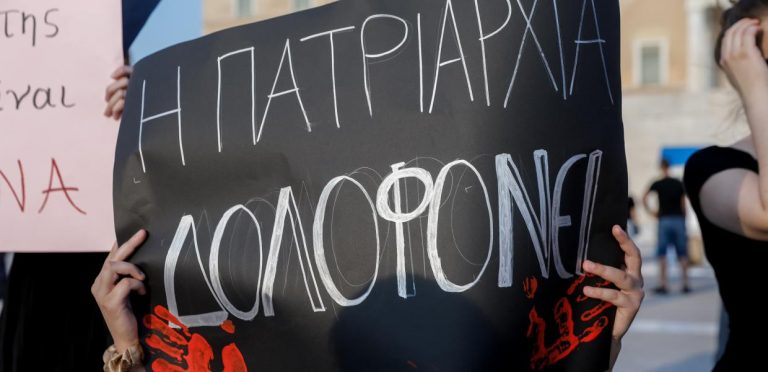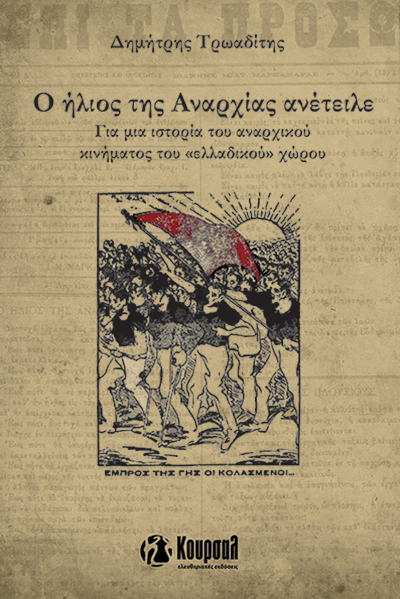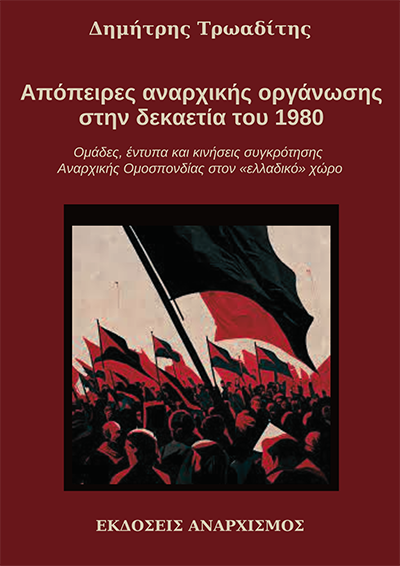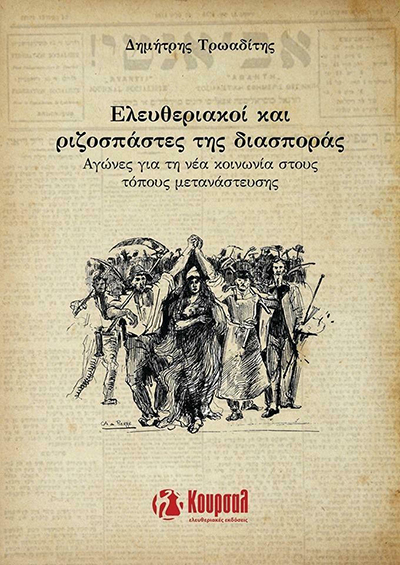
by Nikos Vrantsis
According to the European Institute for Gender Equality, femicide is recognized as ”the murder of women and girls because of their gender.” Gender based violence and murders are not new, but they remain undisclosed.
Greece is no exception to that. According to Greek Police data, 69 women were murdered in the years 2013-2018, due to domestic intrafamily violence (which accounts for 30-50% of all women victims of homicides per year). Nevertheless, the number of femicides is in fact much higher, since before law 4531 passed in 2018, current/former permanent partners or parties to a cohabitation agreement did not qualify as family. Overall, from 2012 to 2018, there were 22,183 reported cases of intrafamily violence against women.
It was November 2018, when the shocking rape and murder of 21-year-old student Eleni Topaloudi in the island of Rhodes by two uncannily unapologetic young males, turned into a watershed case and led to a public outcry that strongly contributed for the term femicide to be dynamically introduced for the first time in the Greek public discourse. Thenceforth, ”femicides” begun to be reported by the media as well as human rights organizations, without, however, significant steps being taken to prevent and support victims of gender-based violence.
People as property
It did not occur to me when I chose on the destination of my summer vacation, when I looked down out of the plane window, or when I landed and drove down the narrow streets replete with bare rocks, prickly pears trees, dormant wind turbines and structures made of concrete.
Only two days later, when I found myself in the traditional village of Olympus and encountered local women wearing their traditional costumes, did I remember a monograph written by an anthropologist, Bernard Vernier, about family relations on the small island of Karpathos.
It’s been many years since I read the book, and I vaguely remember the arguments of its author, but I still retain the connection Vernier draws between the small size of owned property and the emergence of a special norm of patrimony called ”κανακαριά”.
On this arid island marked by the in-existence of arable land, parents were favoring their firstborn children to the detriment of those born later. Their property was not divided, neither shared. The mother transferred her entire property to the eldest daughter, while the father transferred his property undivided to the firstborn son. Second-graders were demoted to unpaid labourers in the service of their siblings, who as undisputed heirs had complete control over the latters’ life and a duty not to let their propertyless brothers and sisters starve out of poverty.
Dressed in the traditional costume of Olympus, Mrs. Dimitra, who makes a living selling souvenirs to tourists arriving in this secluded village, has an answer at once apologetic and critical: “It was unfair… I can tell you some horrible stories… But Karpathos is a desert island, when we talk about property we are talking about ten olive trees; if they got this divided all children would starve to death ”.
The dry land of Karpathos, the small size of property gave birth to family conflicts, social inequalities and collective emotions, hence the title that Vernier chose to give to his volume: “The social creation of emotions”. The form of property was the determining factor that shaped a system of intra-family slavery. But today it is the echoes of this social system that shape the face of the island.
In front of the concrete buildings — some complete, others half-finished, others glaring bare skeletons of future hotel units — there are US flags hanging from the façades or poles immersed in the front yard. These are all signs of a return, or more precisely of revenge. The horrible stories of Mrs. Dimitra, were all related to abusive control and violence exercised by the parents and firstborns on the body and psyche of those considered second-graders. Nevertheless, there were among them those who did not reconcile with their socially constructed destiny and migrated abroad, escaping from this micro-relationship of absolute control manifesting itself as a dual mechanism of security/coercion. They migrated mainly to the land of promise, that is the US.
Now, they themselves or their descendants nurtured into the resentment of their parents’ stories, return and ostentatiously invest their dollars into concrete structures of mega-hotels, at the sight of which the “old” Karpassians burst into contemptuous comments.
Hidden homelessness of women
It’s been almost five years now, that the vacant façades of abandoned properties, in the narrow pedestrian street named “Solomou”, in the centre of the small remote town of Naoussa in the Greek North West turned into cafes, with the kind sponsorship of EU funds. “Everyone opens cafes and pubs. If nothing works out, I will open one of those as well”, says Katerina[1] indirectly pointing at her bad financial state. Nevertheless, she gives the impression that she belongs to this category of people who would consider joining this common group of micro-entrepreneurs, with socially degrading connotations.
Sitting opposite me, her carefully picked words show that she is focused on our discussion, though she does not make any eye contact, her gaze is glued on her four-year-old son who is playing ball on the sidewalk. Her quiet surveillance of the boy is interrupted by loud reminders to him to watch out for motorcycles, while she discloses her domestic strife to me.
Katerina was one of the few women who answered the anonymous questionnaire that our research team[2] distributed electronically in the small municipality of Naoussa with which we aimed at identifying the exposure of women to the housing crisis in this local setting. She was the only one who voluntarily provided her personal contacts in the survey in case they wanted to discuss their domestic issues in depth and at length.
Katerina’s story is indicative. After completing her successful undergraduate and postgraduate studies in economics in the city of Thessaloniki, she decided to return to the small town of Naoussa, in order to be close to her partner, while looking for work. Her efforts did not bear fruit. Today, at the age of thirty-five, she works for a local business, 10 hours a day for low pay. The financial contribution of her partner to cover the expenses of their family, triggered the emergence of domestic violence, primarily manifested in Katerina’s degradation as a wife and mother: ”During the pandemic this got worse. He drank, he insulted me, the place became even more toxic. I want to go”.
The nucleus of the familistic system is shaken
According to FEANTSA’s European Typology of Homelessness and Housing Exclusion (ETHOS), people living in precarious housing conditions or under threat of violence fall under the category of homeless. Living in seemingly safe homes but experiencing latent pressure and violence and constant insecurity render many women homeless.
Unfortunately, stories like Katerina’s are quite common; they remain unpublished , and underreported because from the most overt to the most sinister, oppression of women is far too normalised and even in some cases internalized by women themselves who have accepted their so called deserved ”inferiority”.
Trying to collect accounts of the housing conditions from people living in the poorest neighborhoods of Naoussa, when our research team encountered women they often hid, avoided talking to us, referred us to their husbands, and when the latter were absent we simply did not get any answer to questions such as: “How are the conditions in your home?”, “How do you warm up in winter?”, “What problems do you face?”. But even when they try to talk, in the absence of any administrative response, the feeling of exposure is amplified.
In the city of Naoussa, as in other localities throughout the country, the norm of “κανακαριά” may no longer be alive, but there are features in common with those described by Vernier. First and foremost, there still is a sub-category among the human whole that is by many considered “naturally” inferior, hence being dehumanised, and transformed into property: women.
However, according to the 2011 census, in this remote, shrinking town of the Greek North, which is an indicative case of trends observed throughout the rural side of the country, a major change is recorded. Single-member households increased by 45% compared to 2001, two-member households increased by 14%, while four-member households and all households with more members decreased significantly. This is largely due to (i) the fact that young people have left and chosen not to return, (ii) that young couples choose not to have children and (iii) that the number of women who broke up from their households has increased.
Just as the migration out from Karpathos was a way second-borns to get free from their social destiny, so the legal flight of women out of their households becomes a way to escape from symbolically and in cases physically painful relationships.
More and more often, women choose to leave the, often, suffocating shackles of their household. This is partly due to the fact that men, although they insist on considering their wives as their property, are unable to fulfil their own social roles as (financial) providers as easily as in the past, due to declining wages and rising unemployment. Reproduction of the performance of traditional gender roles is increasingly arduous. Nevertheless, what endures is when men perform their gendered duties like providing ‘protection’ what they ask in return is full control, full obedience, which often women refuse to give, preferring financial insecurity instead of psychological doom.
However, when women shred their violent relationships – psychological, physical or verbal – they often face insurmountable problems.
COVID-19, gender violence and femicide in Greece
During the pandemic, Greece recorded an outbreak of violence against women. The consequences of lockdown — financial insecurity, restriction, fear of disease and death, increased alcohol consumption and drug use — created the conditions in which abuse of women was enhanced. Many houses were turned into places of torture.
During the first lockdown, calls to the Support Line SOS 15900 run by the police for the support of victims of domestic violence increased by 230%. According to the data, the perpetrators are mainly current/former husbands by 56%, or current/former partners by 13%, while 12% of the victims complained that the perpetrator is a member of their nuclear family (brother, father or other relative).
Femicides, which eventually have started to be labeled and recorded as such, that is the successive murders of women, their shocking routine, show how entrenched and socially pervasive patriarchy is in Greek society, how “natural” murder seems to be as a solution of men who consider themselves to be entitled to exercise their “natural” property rights at the expense of women. There are thousands of men who feel they have every right to control, oppress, abuse and sometimes kill their wives, girlfriends, children, for reasons of ”non-compliance”.
What has created and sustains the patriarchal framing of gender relations in Greece has its traces in the societal set-up, diffused micro-property that favors unequal intra-family relations, and in the role of the state that governs mainly through management at the level of the household revolving around the male breadwinner; the main protagonist in moralising and normalising free labor and overt or concealed exploitation of women.
Conflicting directions
In the wake of the pandemic, the outbreak of domestic violence has led the government to set up and increase victim support lines operating inside police stations. What this practically means is just another hotline in the policy directory. But women’s emancipation in the Greek context cannot come via a posteriori calls to the police. It requires systemic responses that will empower women, the same being true for any vulnerable individual, so that their decision to quit the sphere of violence will not involve the risk of poverty and social exclusion.
However, the government fathoms it differently. A few days ago, the Greek prime minister announced that State provided houses would be offered to new couples. Apart from the distrust towards the proclamation coming from an overtly right wing government of a State that never designed or ever supported any centrally provided ready-made housing to its citizens (in opposition to other European countries after the end of WWII), the emphasis on ”the couple” with its potentiality to reproduce more nucleus households is indicative of the ethos of social support.
The administration’s response to the housing insecurity of large sections of the population, including many women, focuses on subsidizing a family-centered model, offering conditional housing, in many cases reproducing conditions of toxicity with housing assistance as a payoff.
The struggle of women for emancipation cannot be separated from any persons’ struggle against the systemic and structural binds generating precarity, every person who precisely because of this insecurity is forced to make a series of compromises that ultimately deprive him/her of his/her personality. And like any other emancipation, it requires a social upheaval that will lead to housing and employment support of women as independent individuals and not as “household members”.
Access to decent housing is a fundamental human right and a condition for a secure life. For such a right to be granted in a state that has always governed through the “holy Greek family”, we need a universal, but at the same time personal demand: housing support to each individual going through a housing crisis without the pre-condition of forming state-blessed heterosexual relations.
According to estimates and recent reports, Greek metropolitan centres as well as towns in rural settings are shrinking because of out-migration, hence up to one third of the total housing stock remains vacant and unused, despite it — or parts of it — being of good quality. These empty, good quality housing resources that exist in Greek cities could be the basis of a universal and socially just housing policy without preconditions perpetuating patriarchal structures to the detriment of women’s lives and integrity.
References:
[1] Names have been changed for anonymity purposes
[2] A team of independent researchers on housing deprivation in rural setting in Greece, called H.A.R.T.A (Housing Affordability in Real Terms Act).
October 29, 2021
Posted in Articles / Analyses
Tags: Feminism, Greece




